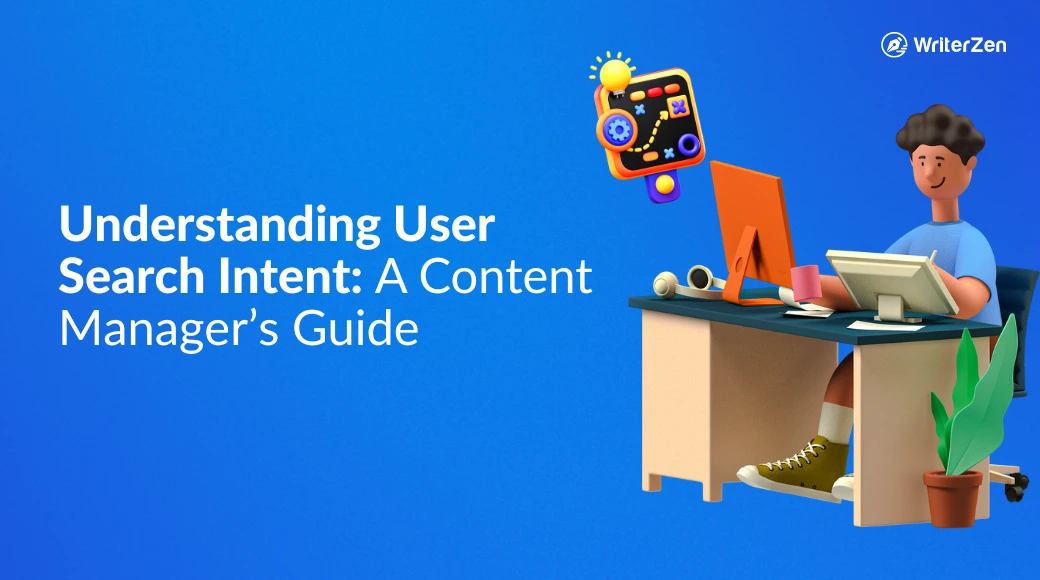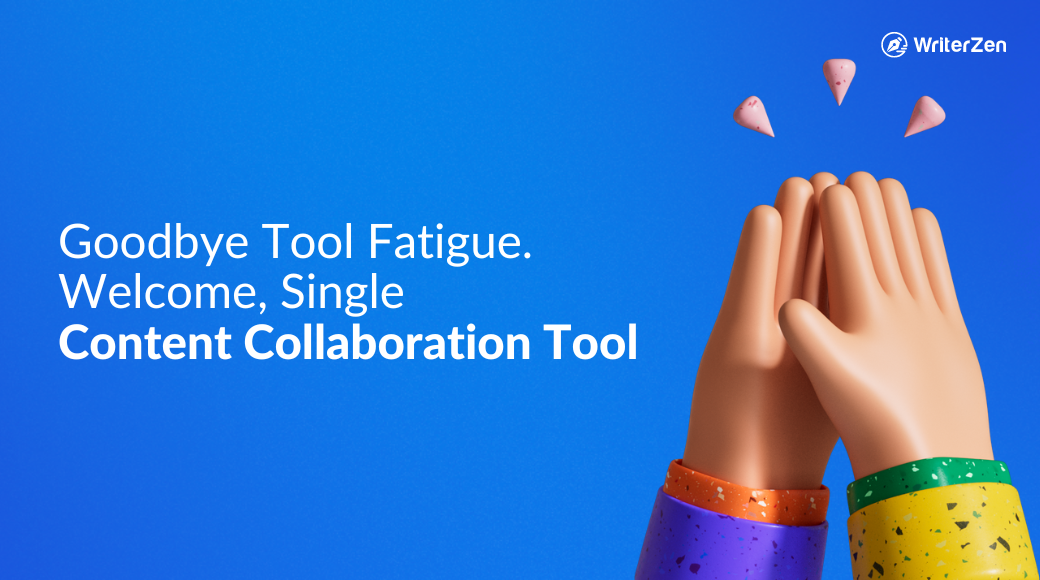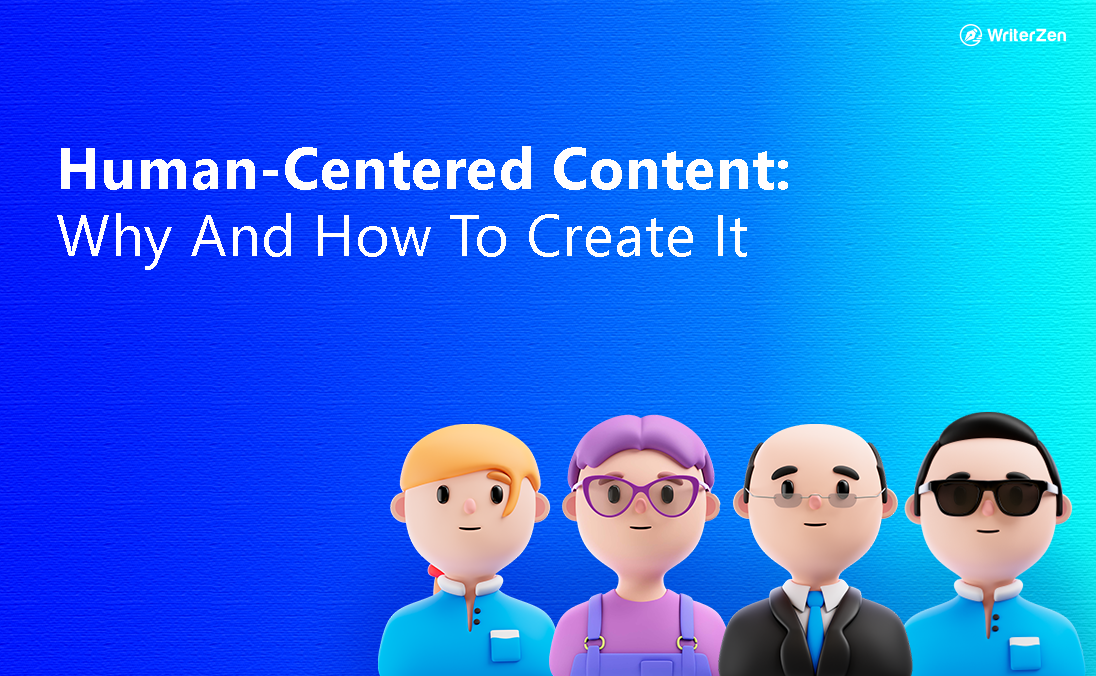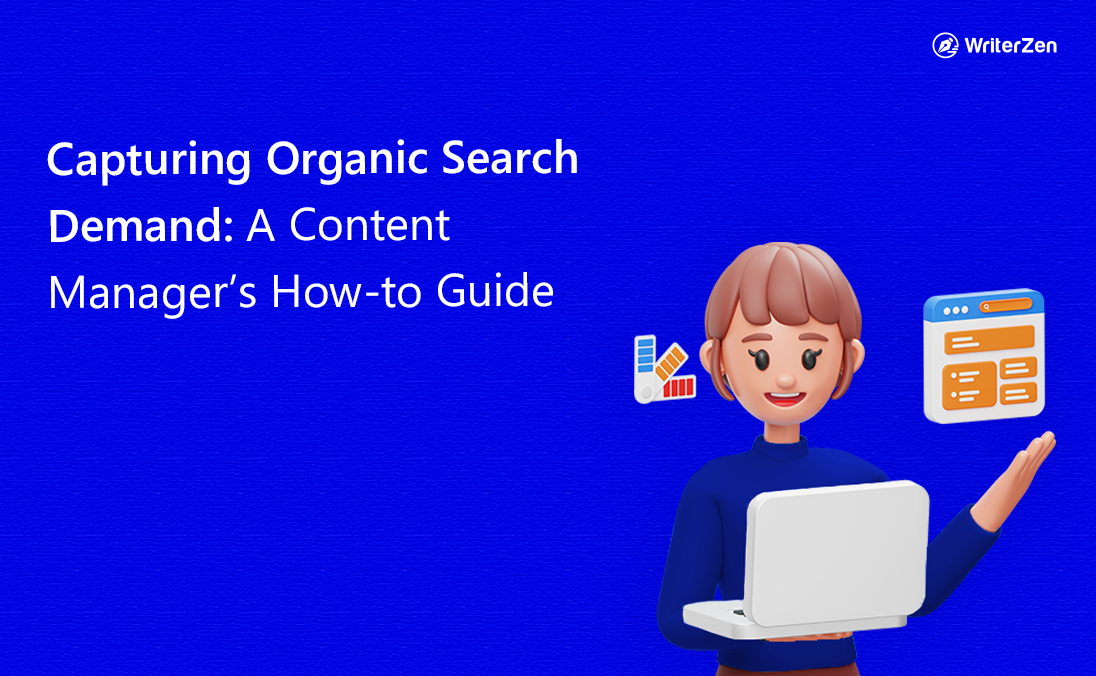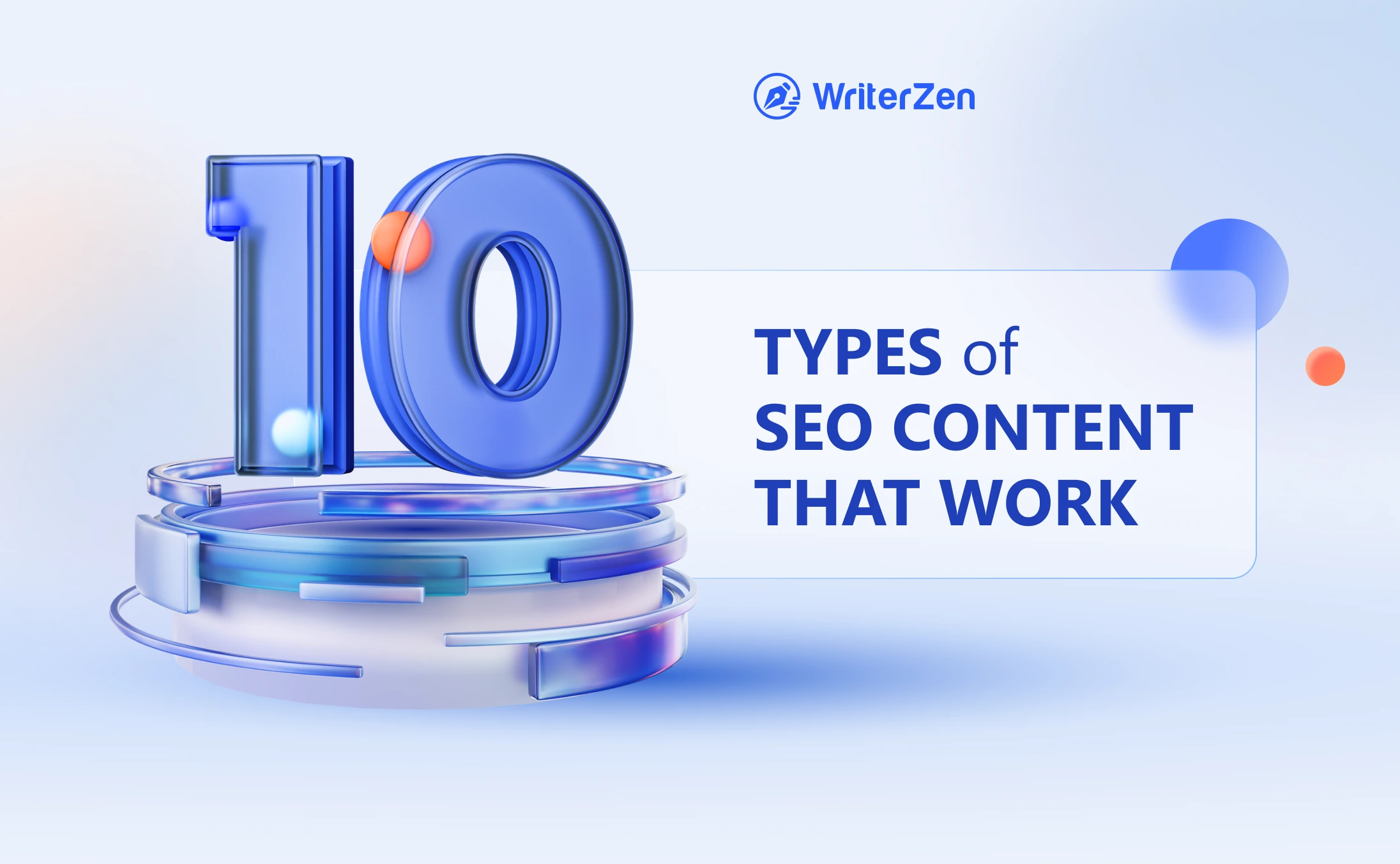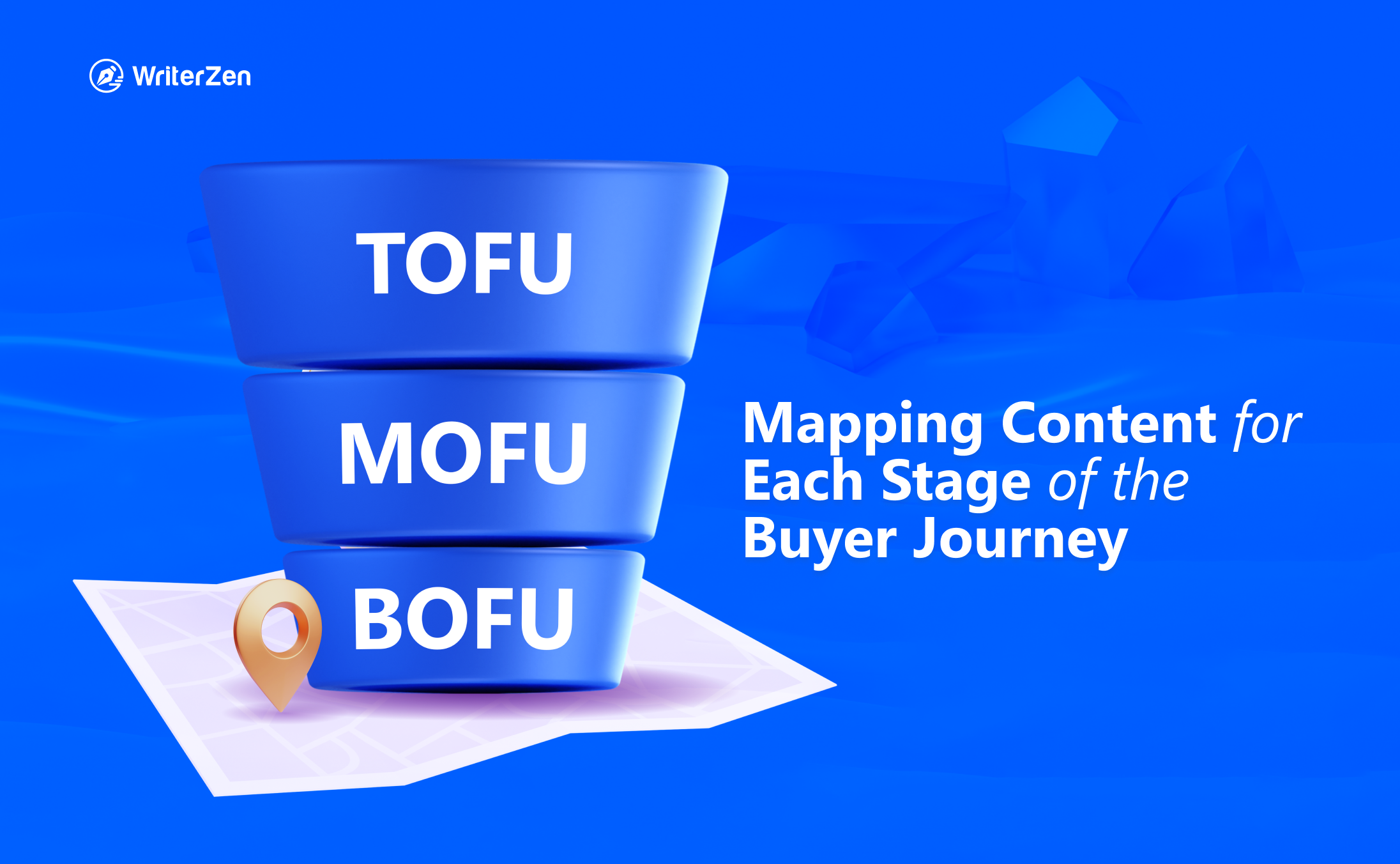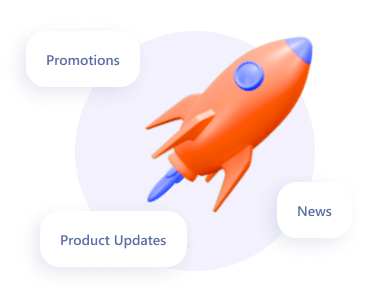Embarking on the intricate journey of business-to-business (B2B) marketing, crafting a strategy that yields results can prove quite the challenge, especially in the ever-shifting world of digital marketing.
B2B marketing extends beyond mere product or service promotion; it thrives on nurturing customer bonds, fostering trust, and propelling revenue through an impeccably tailored digital journey.
This article serves as a compass for your understanding of B2B marketing, spanning audience identification, competitor analysis, digital channel exploration, and cultivating customer trust.
Definition of B2B Marketing
B2B marketing is the heartbeat of interactions between two businesses. It facilitates transactions, services, or collaborations between organizations.
The B2B digital landscape dives deep into brand positioning, identification of target demographics, market segmentation, competitor analysis, exploration of marketing channels, and adaptation of SEO strategies.
Picture a manufacturer sourcing raw materials from suppliers, a software company licensing its technology to corporations, or an advertising agency partnering with a company to enhance its marketing efforts – these are all prime examples of B2B interactions.
How Does B2B Differ from B2C?
Before we delve deeper into the nuances of B2B marketing, let's draw a clear distinction between B2B and its counterpart, business-to-customer (B2C).
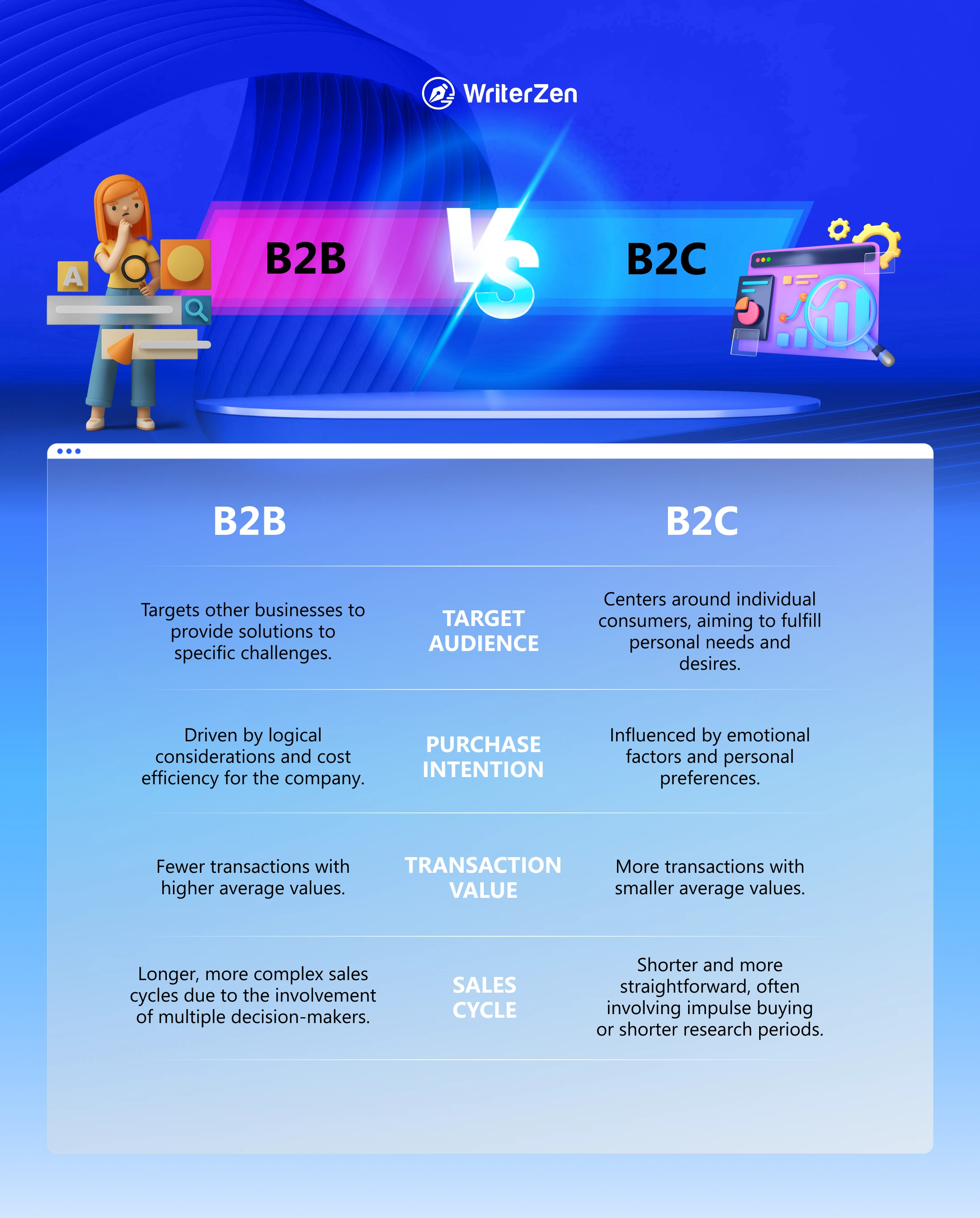
-
Target Audience: B2B centers around fostering relationships with other businesses and providing solutions to address specific challenges those businesses face. B2C, in contrast, targets individual consumers to fulfill their personal needs and desires.
-
Purchase Intention: B2B decisions are, for the most part, rooted in logical considerations and cost efficiency for the company. In B2C, emotional factors and personal preferences often influence buying decisions.
-
Transaction Value: B2B transactions, though fewer in number in terms of sales, tend to carry much higher average values. B2C transactions involve a larger customer base, but individual sales usually have a smaller average value.
-
Sales Cycle: B2B transactions follow extended and intricate sales cycles, mainly due to the involvement of multiple decision-makers within the business. B2C sales cycles are generally very short, often due to impulse buying and less research.
How Does B2B Work?
B2B digital marketing promotes products or services between businesses using digital channels, which can include many strategies you’ve likely already heard of, like:
-
Email Marketing: Crafting compelling email campaigns tailored to the specific needs of businesses. These emails could offer insights, solutions, or exclusive offers that resonate with the challenges faced by other companies.
-
Search Engine Optimization (SEO): Optimizing your SERP presence to ensure your products or services appear prominently in search results.
-
Content Marketing: Creating authoritative and informative content such as blog posts, articles, whitepapers, and videos. This content showcases your expertise, addresses industry pain points, and establishes your brand as a go-to resource.
-
Live Events: Hosting webinars, online workshops, or virtual conferences that provide value to other businesses. These events can position your company as a thought leader, fostering engagement and networking opportunities.
-
Social Media: Leveraging various social media platforms to connect with businesses in a more personalized manner by sharing industry insights, success stories, and valuable content.
But to fully grasp the essence of B2B marketing, let's take a peek at its inner workings:
Identifying the Ideal Audience
In the B2B realm, the target audience isn't an individual consumer but a business entity. B2B involves researching and understanding the roles, responsibilities, and pain points of decision-makers within these organizations.
Tailored Messaging and Content
B2B marketing demands highly targeted and relevant content, and the effectiveness of your strategy hinges on tailoring your messaging and content to address the distinct needs of your target businesses.
This customization involves your deep understanding of the audience's industry, pain points, objectives, and challenges. Examples include in-depth whitepapers, researched case studies, and insightful blog posts showcasing your expertise and providing actionable solutions to your audience's challenges.
This tailored approach establishes your brand as an authority in the field. It builds a stronger rapport with potential clients who recognize that you comprehend and can effectively address their requirements.
Relationship Building
B2B transactions often require building and nurturing long-term relationships, which involves establishing trust, offering solutions, and showcasing your expertise. So, it’s crucial to leverage digital platforms such as social media, email campaigns, and webinars.
These platforms provide the means to showcase your industry knowledge, highlight your problem-solving capabilities, and consistently offer value to your audience. Webinars provide a virtual space to directly engage with potential clients, showcasing your insights and fostering connections.
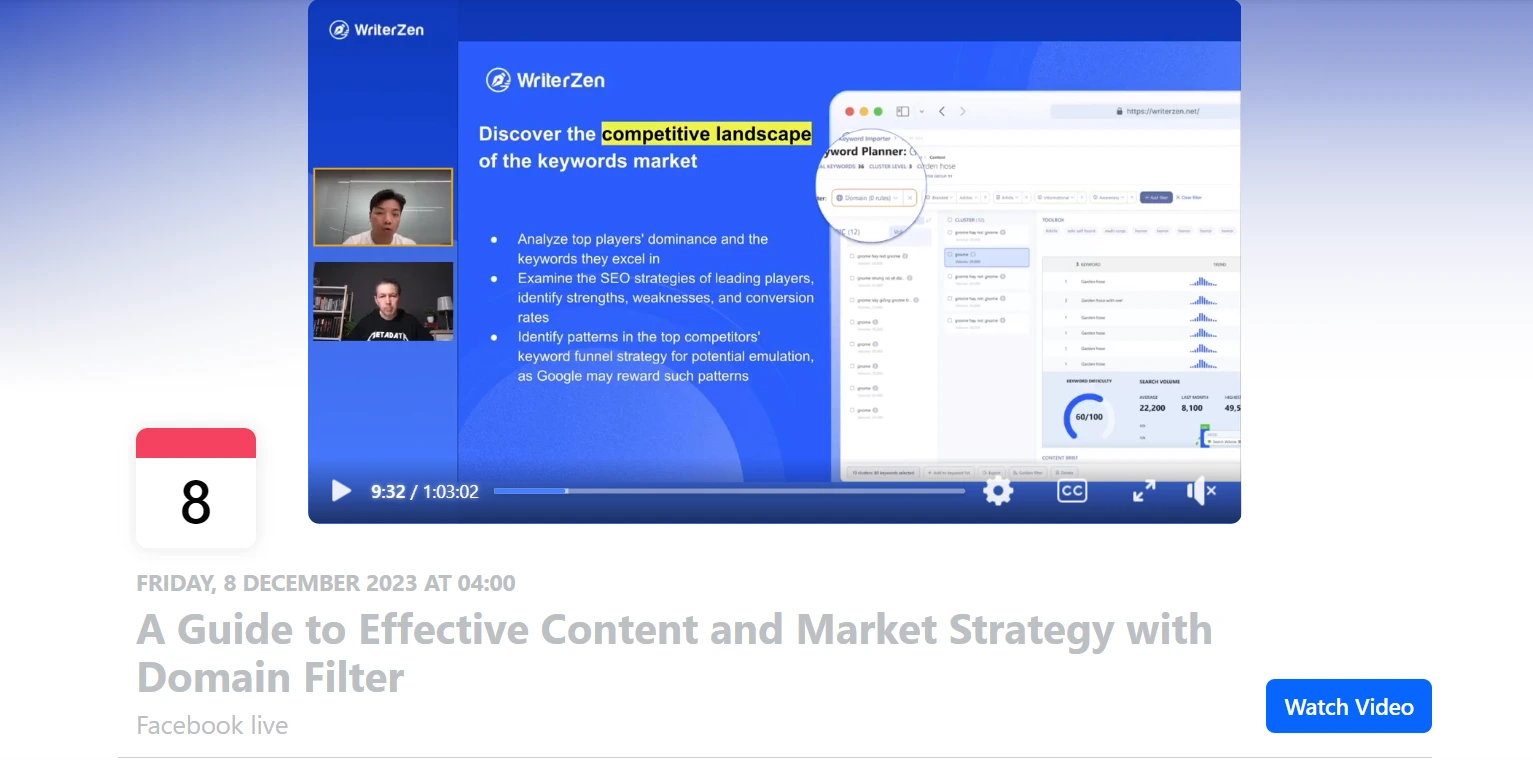
Long Sales Cycles
Due to the complexity and larger stakes of B2B transactions, the sales cycle tends to be longer than in B2C scenarios. The longer timeframe is due to the involvement of numerous stakeholders and the detailed evaluations undertaken before finalizing a partnership. B2B decision-making requires aligning different teams to ensure the proposed solution integrates well with the business.
Consequently, B2B marketers need patience and a deep understanding of the multi-faceted considerations as they guide prospects through the complex sales funnel to a mutually beneficial collaboration.
Why Is B2B Important?
B2B digital marketing is not just a facet of modern business; it's a cornerstone that shapes how companies navigate the digital realm to discover, explore, and acquire products and services. Here's why:
-
Research Aid: In an era where digital channels have become the go-to for business interactions, B2B digital marketing serves as the compass that guides enterprises through this expansive terrain. Companies now rely on digital avenues to search for solutions, research, and make well-informed purchasing decisions.
-
Audience Education: Picture this – 70% of marketing technology buyers actively seek out content on vendor websites. Your digital presence isn't just a placeholder; it's a treasure trove of educational content that informs prospects and nudges them closer to conversion.
-
Visibility: The digital arena is crowded, but B2B businesses with digital marketing strategies enjoy a distinct advantage – heightened visibility. When you strategically position your solutions online, your target audience can easily find and evaluate them, fostering a sense of familiarity and trust.
-
Engagement: Through digital channels, B2B businesses can engage customers on a whole new level. Interactive content, personalized experiences, and real-time interactions create engagement that resonates deeply, fostering relationships beyond the transactional.
-
Precision Targeting: B2B digital marketing is about hitting the bullseye. Targeted advertising ensures that your efforts are laser-focused on the businesses most likely to benefit from your offerings. This optimizes your marketing budget and ensures that your message reaches the right ears.
-
Cost-Efficiency: Gone are the days of sprawling billboards and expensive print campaigns. B2B digital marketing offers a cost-effective avenue that yields impressive results. Through intelligent strategies, you can achieve more with less, allocating resources where they matter most.
-
Tangible Outcomes: The beauty of the digital realm lies in its measurability. B2B digital marketing provides the tools to track, analyze, and quantify the impact of your efforts. You can refine strategies in real-time, optimizing outcomes as you go.
Benefits and Challenges of B2B Marketing
As with any venture, B2B marketing comes with its own set of benefits and challenges. Navigating this landscape requires a keen understanding of the lucrative opportunities it presents and its nuanced complexities.
Benefits of B2B Marketing
-
Improved Brand Visibility: It elevates your online presence, enhancing brand recognition. Customer interaction fosters trust and accessibility, while social media engagement contributes to brand identity.
-
New Customer Acquisition: Its efforts bring fresh customers who discover your products. Satisfied newcomers become loyal supporters, spreading the word and expanding your consumer base.
-
Improved Products and services: Its interactions aren't just transactional but conversational. You can refine your offering by implementing customer feedback and aligning them with real needs and pain points.
-
Increased Revenue: B2B marketing is targeted and persuasive. Guided by insights, it leads potential customers towards tailored solutions, driving conversions and revenue growth.
-
Better ROI: It isn't just about effort; it's about data-driven refinement. Insights gleaned lead to product/service improvements, amplifying ROI and overall growth.
-
New Opportunities: It unearths prospects within challenges. Conversations reveal pain points, guiding innovative solutions that resonate with businesses seeking answers.
Challenges of B2B Marketing
-
Long Sales Cycles: Longer sales cycles and multiple decision-makers can make the process intricate and time-consuming. The process becomes a delicate dance of aligning priorities, addressing challenges, and building consensus among decision-makers.
-
Intense Competition: B2B transactions tend to have higher stakes. Competition can be fierce, which makes it harder to attract new customers and demand that marketers stand out effectively.
-
Financial Commitment: B2B marketing can be expensive. Investments in B2B marketing, including promotional content and distribution channels, are prerequisites. However, these financial outlays don't assure positive audience responses, leading to uncertainty.
Best Practices for B2B Marketing
For those stepping into the realm of B2B marketing, here are some best practices to keep in mind:
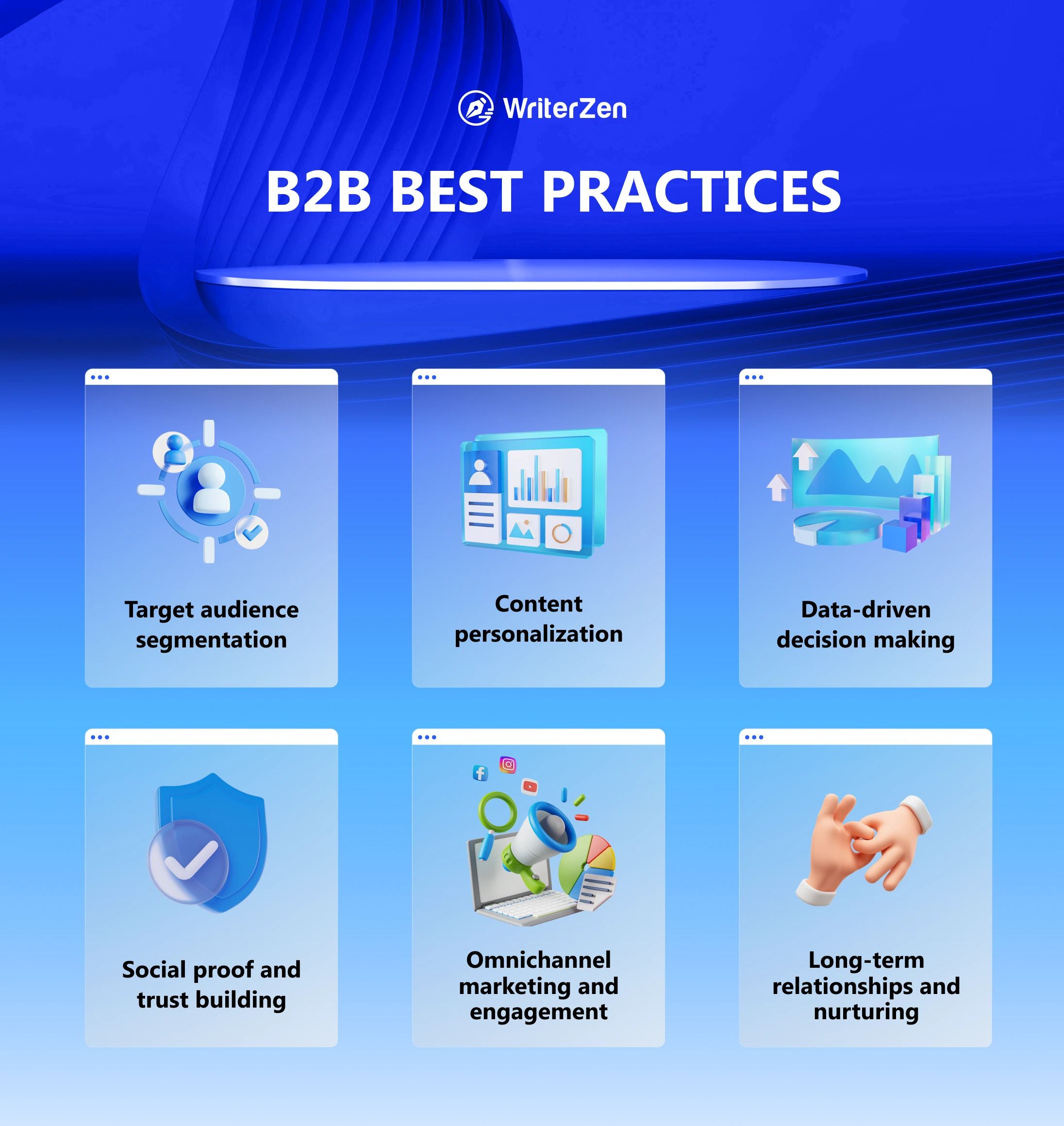
Target Audience Segmentation
Going beyond general demographics, delve deeper into understanding your ideal customers - their specific roles, industries, and pain points. Imagine a Venn diagram where distinct buyer personas overlap based on shared challenges, then craft targeted messaging and solutions for each segment.
By speaking directly to their needs, you'll resonate deeper and convert more efficiently.
Content Personalization
Forget "one size fits all" - tailor your content to resonate with each audience segment. Create informative eBooks for decision-makers, engaging case studies for technical teams, and data-driven white papers for C-suite executives.
Personalization shows you understand their priorities and builds trust, making your content more valuable and likely to be consumed.
Data-Driven Decision Making
Don't rely on gut feelings – leverage data to make informed marketing decisions. Track website traffic, analyze email engagement, and measure social media reach.
Use these insights to identify what's working and what's not, and continuously optimize your B2B marketing strategy for better results. Imagine a dashboard displaying key metrics, guiding you towards data-backed decisions for maximum impact.
Social Proof and Trust Building
Showcase successful partnerships, glowing customer testimonials, and industry awards. These social proof elements build trust and credibility, demonstrating the value you deliver to other businesses.
Think of logos from renowned companies displayed on your website, acting as virtual stamps of approval that attract new clients.

Long-Term Relationships and Nurturing
B2B relationships are marathons, not sprints. Nurture leads with valuable content, industry insights, and personalized outreach. Host informative webinars, attend relevant trade shows, and offer ongoing support beyond the initial sale.
By investing in long-term relationships, you build loyalty and advocacy, turning customers into raving fans who drive recurring business.
Omnichannel Marketing and Engagement
Meet your audience where they are – LinkedIn, industry forums, email newsletters, and professional events. Create a seamless, omnichannel experience that reinforces your brand message across different touchpoints. Imagine a customer seeing your ad on LinkedIn, receiving a relevant email later, and then encountering your booth at a trade show – consistent brand presence builds recognition and trust.
By focusing on these six crucial B2B best practices, you can effectively reach, engage, and convert your target audience, building strong relationships and driving sustainable growth for your business.
Final Thoughts
In conclusion, B2B marketing is a multifaceted realm that shapes modern commerce. Understanding its complexities, fostering relationships, and establishing authority is pivotal.
Regardless of your experience level, B2B marketing provides abundant opportunities for growth, innovation, and contribution to the business landscape. Equip yourself with knowledge and enthusiasm to witness your B2B endeavors flourish.




